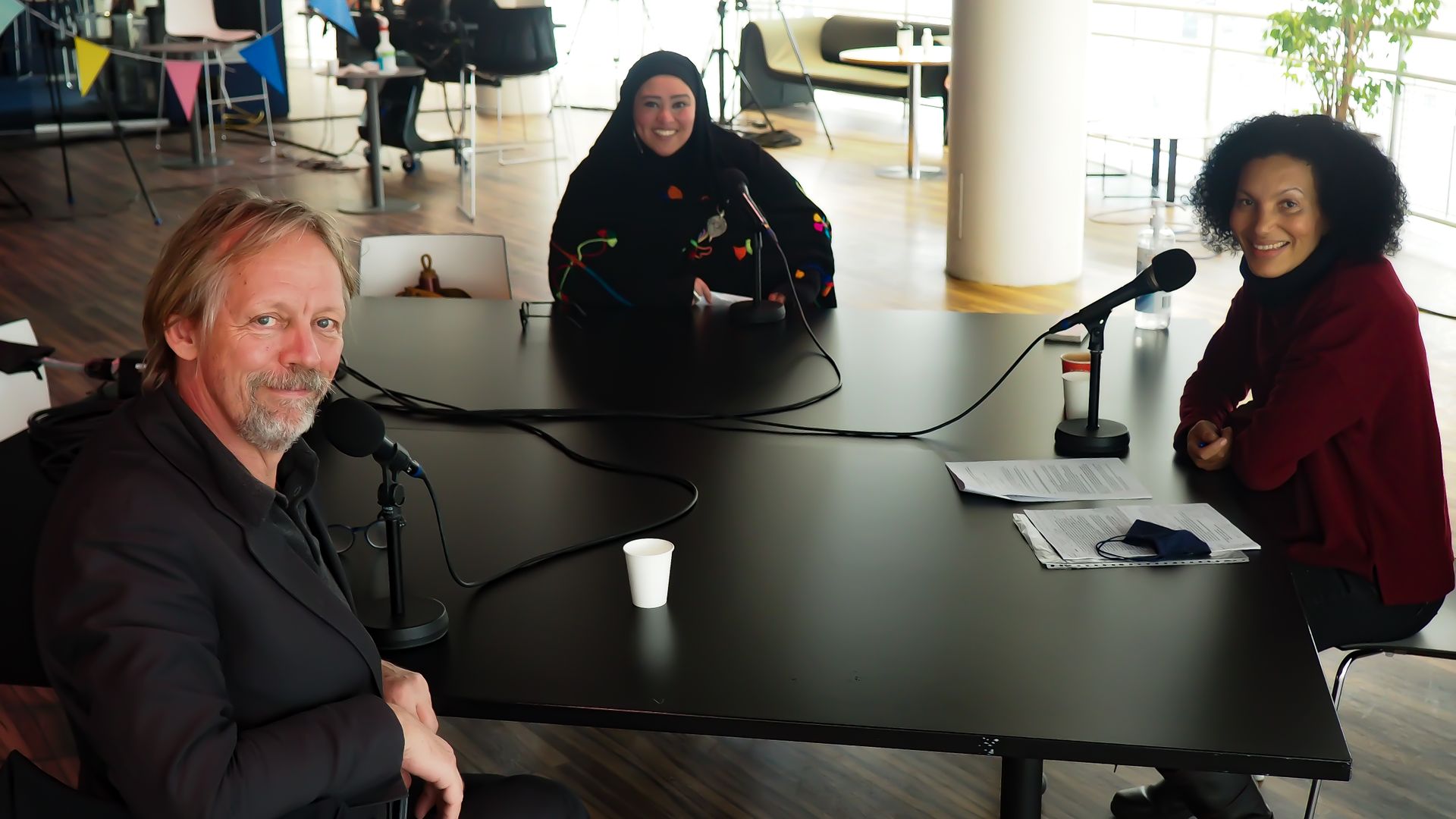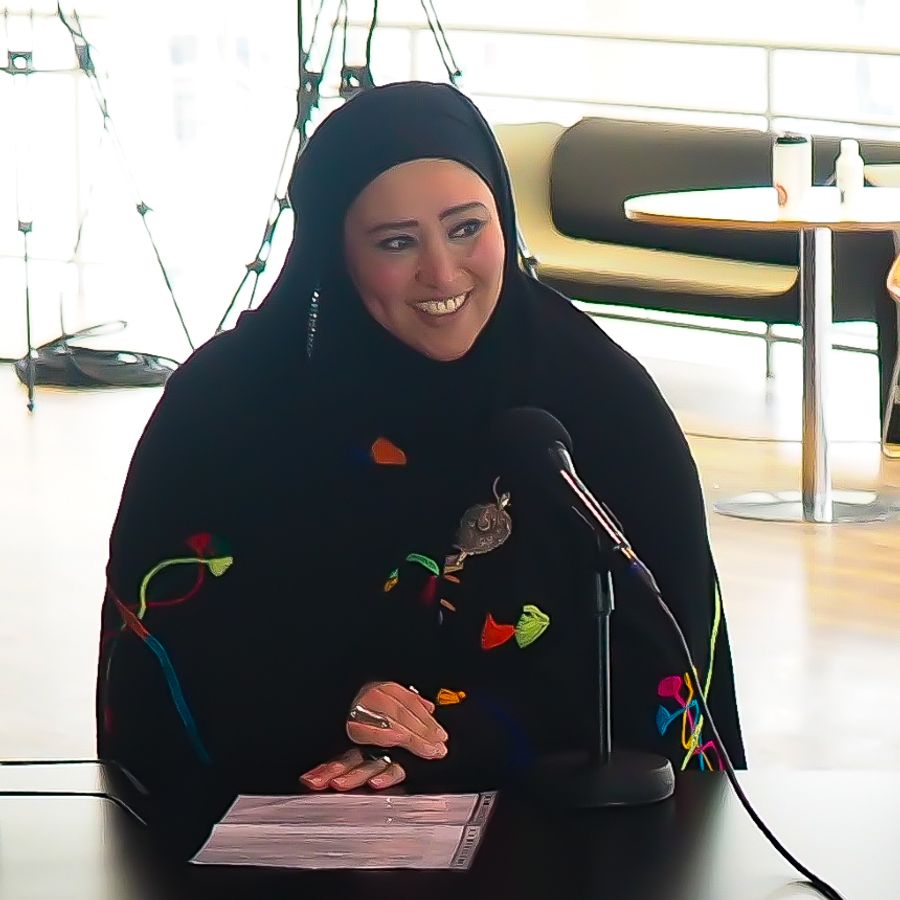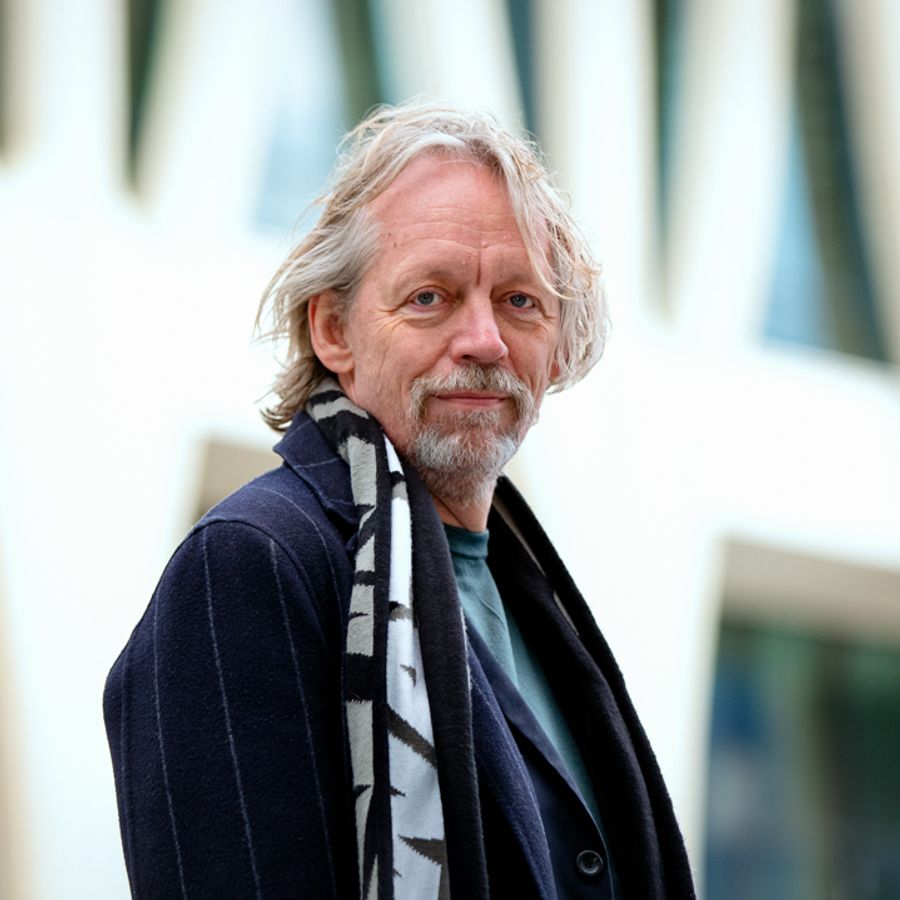
Amare Podcast #2
Inclusivity means… building bridges
March 2021, podcast
In the second podcast, the director of Zuiderstrandtheater and soon of Amare, Jan Zoet, talks to Amal Matil, founder of The Culture Club of Hope. Together they explore how culture can contribute to society and what it means ‘to build bridges’.
“I am seen as a ‘builder of bridges’ by Zuiderstrandtheater,’’ Amal Matil says. “Which is also how I see myself and what I take to be my mission in life. I want to connect people, want to help people understand each other, and want to show how important one’s own culture is.” Jan Zoet also feels affinity with the image of a bridge builder. “As a small-town boy I went out to see the world, and became an experienced bridge builder. It’s all about connecting people. Working in theatre, you can add a whole new layer of meaning to making such connections.”
Zoet will take on his role at the helm of Amare with a vast amount of experience under the belt. “I am bringing the knowledge I gained when working with theatre group Hollandia, where we made ‘theatre outside of the theatre’. In the Rotterdamse Schouwburg we threw open the doors and brought in the street skaters with an Urban festival. I learned from the students at Amsterdam’s Theater Academie that every culture treasures its own Shakespeare.”
Yin & yang
One of Zoet’s goals for Amare is to connect more closely the international and the local city programming. “You form the world together, like yin and yang,’’ he says. “The well-known principle, ‘think global, act local’, is absolutely correct. We cannot just look at The Hague and act as if that’s the whole world, even though the city is home to some 180 nationalities. Even if you don’t understand what an Ethiopian performance is about, for example because of the language: just by seeing and feeling the performance, you gain respect for it, and you do sense the essence of it. And that’s what makes culture such a wealth. But you need to keep an open mind and in that way allow connections to form.”
That is why the programmers and surrounding partners at Spuiplein wish to offer as many parties as possible a place in Amare. Quantity is certainly not the only thing that counts. “The aim is especially or all those cultures of The Hague to have one communal platform that belongs to us all. It’s not a platform that belongs to me as the director or to the city authorities, but it’s a venue of and for the city.” That’s why Zoet is toying with the idea of establishing a cooperative. “Amare will have an open public space, which we want to programme in collaboration with the ‘cultuurschakels’ and Stroom.”
Understanding each other
Matil’s first job was at the Tilburg Stadsschouwburg. “I was a wardrobe assistant. As soon as everyone was inside, I would take on a seat on the stairs to look in. I remember seeing the musical Serafine. It was by a South African group composed of ‘black’ artists. It already struck me then that the entire audience was white. And now, many years later, things haven’t really changed. Just recently I visited a performance by an Eritrean artist in an Amersfoort theatre, and the audience was still largely very white. As a woman wearing a headscarf, people made me feel out of place! You could really feel how people weren’t used to having people of colour among the audience.”
That’s why Matil believes there’s still a long way to go. And it’s also why she is pleasantly surprised by Amare’s vision. “I think it’s wonderful to see that there is a theatre, or a director, who believes that you should take theatre to the people, and should bring people to the theatre. It should be that way in every city in the Netherlands! That’s how you can really help people understand each other. Also the other who is otherwise not seen, or who looks differently, who eats or smells differently, and who sings or dances in unfamiliar ways.”
Much to learn
Matil believes that most of the theatres in the country are not yet able to reach the audiences they wish to reach. This also applied for the Gnawa Festival held in Zuiderstrandtheater. She was surprised that visitors came up to her to ask questions about the performance. “I found myself talking to white visitors who had questions like, ‘what kind of music is this, where does it come from?’ Sure, there is contact and crosspollination at that moment, but the audience could have been ten times larger, with people from my own culture.”
Jan Zoet confirms this. “We still have a long way to go, certainly with regard to marketing. For any classical music concert, we have the data to predict who the audience will be. But for these ‘new genres’, there is still so much to learn. We need to build up those cookies, just like Facebook. And for that we need people like Amal to help us, to keep opening our eyes.”
Sowing seeds while still young
According to Matil, there is still quite a way to go. It should start by discovering what drives and what interests young people today, for instance Moroccan youths. “They like to listen to rappers, for example. By combining such an artist with in-house talent development, you can provide such youths with a platform as well.” Zoet says that, as a theatre, they have already made great strides in this respect, partly by the appointment of a city programmer. Many people still perceive a theatre as a ‘white’ institute, which discourages them from going there.
In Matil’s view, it should be part of educating young people between the age of six and twelve. “By sowing seeds while still young, you can be sure to harvest the results later. The experience of visiting a beautiful place with velvet chairs and a huge podium makes a much bigger impression than visiting a gym.” Zoet thinks that teacher training programmes are also lacking in this respect. “The teacher training institutes no longer offer instruction in theatre or dance. So if the teachers are never introduced to this, how can you expect their pupils to discover this? We need to develop grassroots. Education and culture need to cooperate much more closely.”
The next generation can only deal with the important issues of this century through inclusivity, says Zoet. “You need to have a sense of being in this together, and not of being in conflict. I am very concerned about populism. But if we only focus on this conflict, then we risk losing sight of other problems such as climate change. We can tackle these issues through art and culture.” Matil therefore sees an effective solution in awareness campaigns in schools. “Parents want the best for their child in this society. Many children feel depressed, and every parents wants to know how you can prevent that. Theatre or music can contribute to feeling mentally healthy! By packaging this message in the form of awareness campaigns, you can break the otherwise never-ending cycle.’’
Jan Zoet agrees. “But”, he adds, “for this we need people who can instil this confidence, particularly among the target groups for whom a visit to a theatre poses a threshold. So these should specifically not be ‘white’ people, but people like Amal who can fulfil this bridge building role. We wish to set an example as a house of culture for this century, and not be dominated by any particular tradition or culture. We need a lot of communities for that.” Jan Zoet then concludes the conversation by offering a quick peek at the projects planned for 2021.
About the guests





